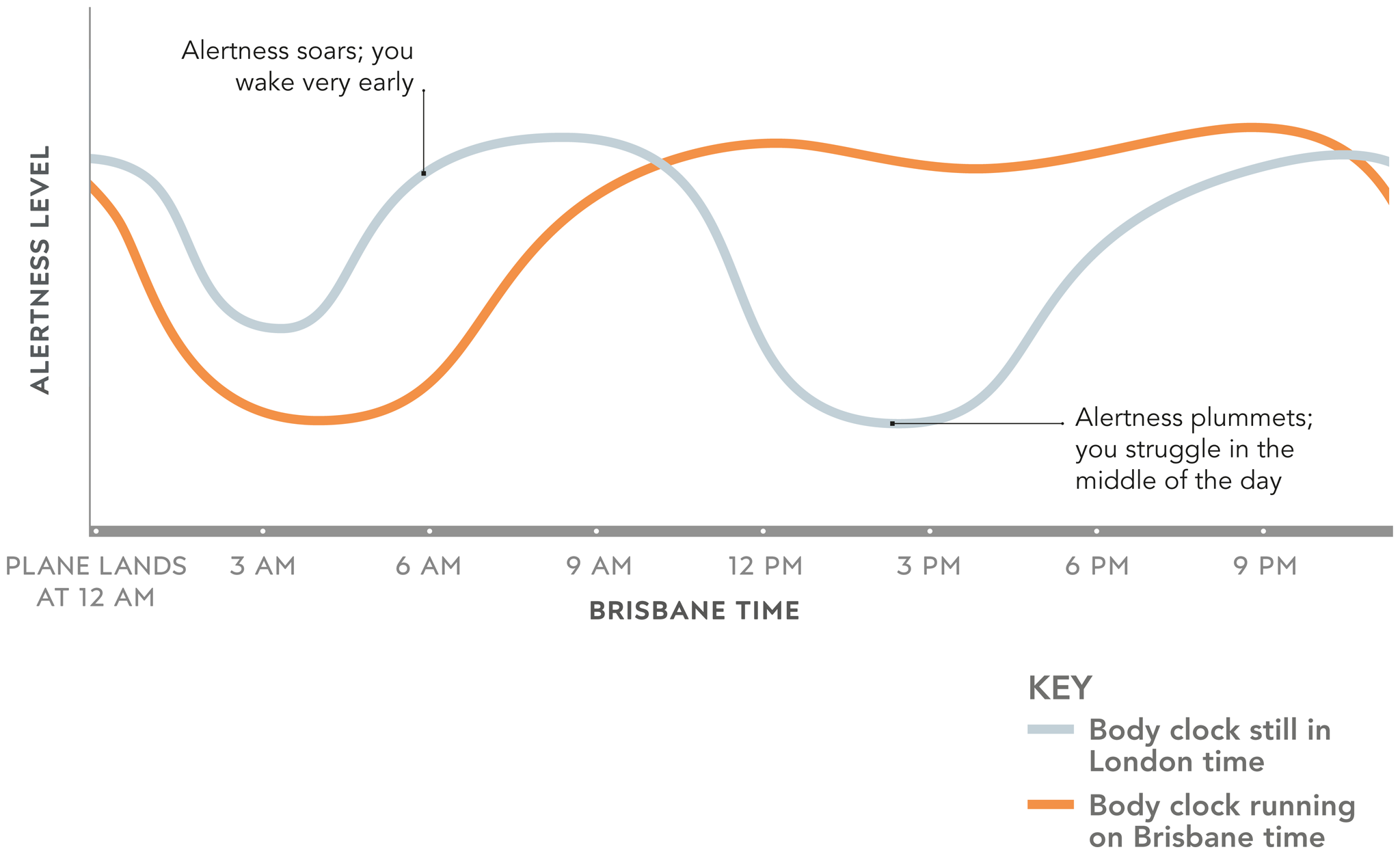How Can I Deal with Jet Lag?
Jet lag can be grim. Your body clock influences all your body systems, and the time it takes to adjust to new time zones depends on how far you’ve traveled.
Before aircraft could speed us around the globe, jet lag didn’t exist—we traveled slowly enough for our bodies to adjust to gradually changing time zones. Jet lag happens when the body clock is out of step with the actual time, causing you to be in night mode when it is daytime (and vice versa).
Flying east is usually harder than flying west. Traveling east usually means you are catching up with the sun and so will arrive at a later hour than your body clock is expecting. Going to bed before your body is ready is not easy; cortisol levels haven’t yet drooped and the melatonin message that the end of the day is nigh has not yet been sent. Flying westward is typically less torturous, because you have to stay up later—and that’s far easier to do, both mentally and biologically.
Such is the command of the body clock, there is simply no way to avoid jet lag. After you’ve arrived at a different time zone, your internal clock will slide forward or backward by about one hour each day. So if your destination time is seven hours out of kilter with your home time, then expect it to take a full week before your body has fully adjusted into the new groove.

traveling west
If you’ve flown from Brisbane to London, your body clock will be nine hours behind the new time zone for the first day. It’s easier for your body clock to delay itself.

n Double-tap image to read the labels
traveling east
If you’ve flown from London to Brisbane, your body clock will be nine hours ahead of the new time zone for the first day. It’s much harder for your body clock to advance itself.
Want to beat jet lag?
1
Avoid caffeine and alcohol on the flight because these will make it more difficult to get into the groove of your destination time zone.
2
Eat meals at the time of your destination during your flight, to help the body clock harmonize with the new time zone.
3
Get into daylight as early as possible and avoid wearing sunglasses so that you feed loud “wake-up!” messages to the brain. Even cloudy conditions will prod your body clock in the right direction.
4
shut out light later in the day—by wearing sunglasses and closing the curtains, you will blunt your body clock’s drive to stay awake.
5
Slog out the rest of the day and try to stay awake until your new time zone’s bedtime, to nudge your body clock into its new rhythm.
